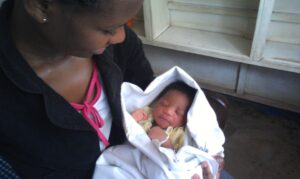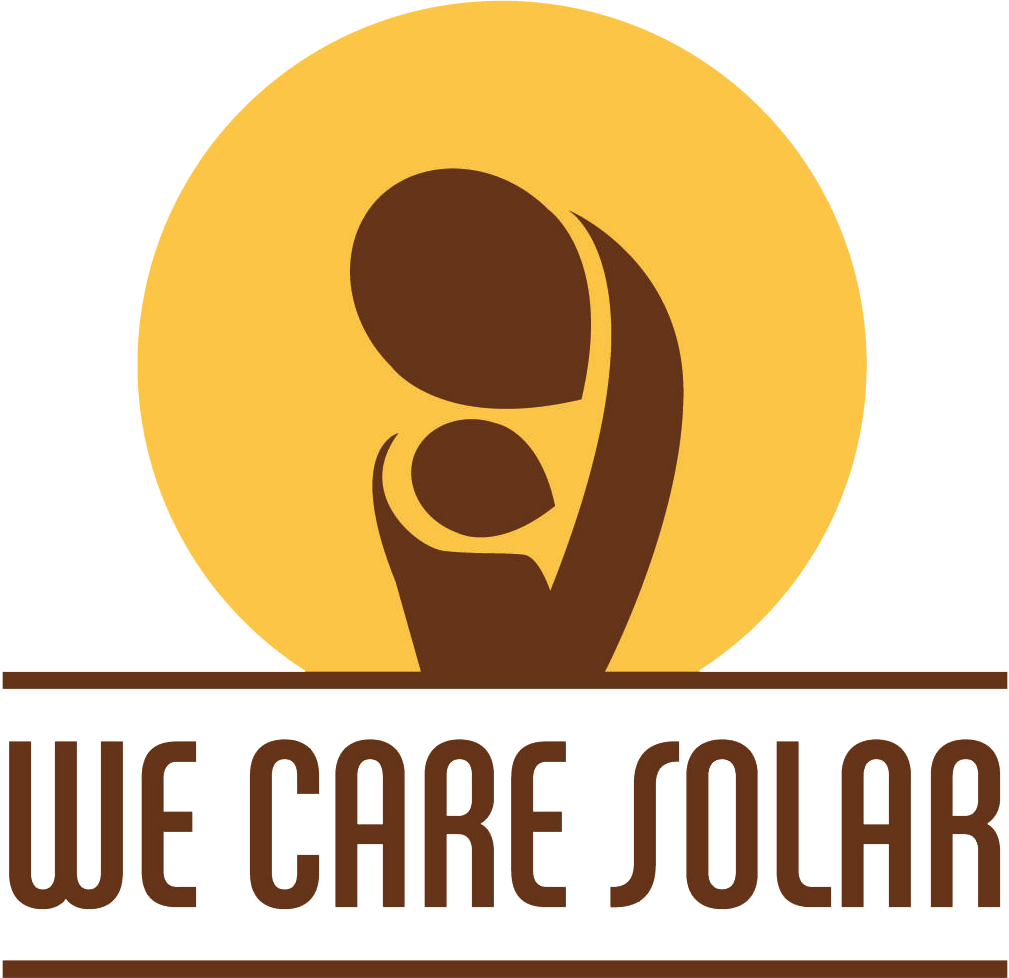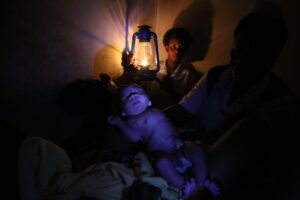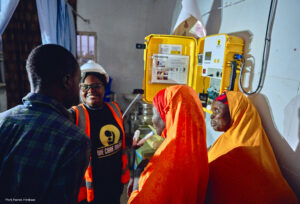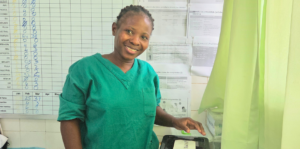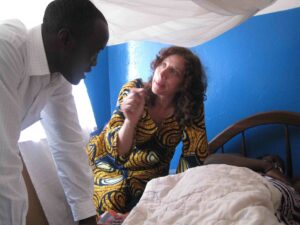 It was raining in the morning when Merritt Gates (our Solar Ambassador in Uganda) and I climbed inside the cab of a pick-up truck. It didn’t bode well for our planned Solar Suitcase installation outside of Kampala. But our colleagues from Ugandan Private Midwives Association (UPMA)– Andrew and Moses – assured us that the weather could change for the better. As we drove beyond paved streets onto dirt roads, passing outdoor vendors selling fruit, children’s clothing, and a sampling of hardware, the rain abated leaving a scattering of fluffy white clouds in a blue sky.
It was raining in the morning when Merritt Gates (our Solar Ambassador in Uganda) and I climbed inside the cab of a pick-up truck. It didn’t bode well for our planned Solar Suitcase installation outside of Kampala. But our colleagues from Ugandan Private Midwives Association (UPMA)– Andrew and Moses – assured us that the weather could change for the better. As we drove beyond paved streets onto dirt roads, passing outdoor vendors selling fruit, children’s clothing, and a sampling of hardware, the rain abated leaving a scattering of fluffy white clouds in a blue sky.
We reached Mary Maama Maternity center – a small health facility owned by one of the 700 midwives who comprise the UPMA. UPMA was founded to increase access to quality maternal health services in a country where women face a 1 in 49 lifetime risk of dying in childbirth. The small clinic maximized every available inch of space. A modest waiting room had a single bench and was decorated with health posters. A corner had been converted into a small medical records area. A pregnant woman was waiting in a tiny outpatient examination room. The cozy inpatient ward consisted of three beds lined in a row. They were all occupied but afforded some privacy by brightly colored curtains. At the end of the ward was a single delivery room, a small room boasting a delivery bed in good repair and a metal table well-stocked with delivery supplies. This was one of the most organized clinics I had seen in Uganda.
Anatoli, the clinical officer, explained that the health center lost power at least four nights a week. The staff had tried several lighting options including battery-operated lanterns (no longer functional), candles (very difficult to use in deliveries), and the light from their cell phones. Two people were always needed at a nighttime delivery– one to conduct clinical care and the other to direct the hand-held light source. Anatoli admitted that it was very difficult to conduct decent care under these conditions. During a recent nighttime delivery, for example, the cell phone light was inadequate to detect meconium-stained amniotic fluid – a typical sign of fetal distress. In the darkness, they hadn’t realized the newborn baby needed immediate resuscitation. By the time they recognized that the baby was in trouble, the only recourse was to transfer the baby to Mulago Hospital, where it required intensive care for days.
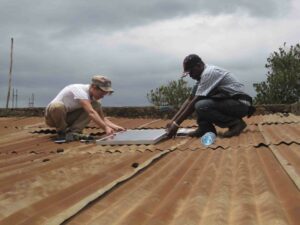 Our team got to work. Andrew worked with the health staff to select the proper location for the Solar Suitcase and lights. Moses and Merritt surveyed the roof. Though it was old and rusty, the support beams were adequate and it wasn’t too steep. Andrew taught Anatoli and the other health workers how to use and maintain the Solar Suitcase while Moses and Merritt installed the solar panel on the roof. The system was soon up and running, well in time for the evening’s activities.
Our team got to work. Andrew worked with the health staff to select the proper location for the Solar Suitcase and lights. Moses and Merritt surveyed the roof. Though it was old and rusty, the support beams were adequate and it wasn’t too steep. Andrew taught Anatoli and the other health workers how to use and maintain the Solar Suitcase while Moses and Merritt installed the solar panel on the roof. The system was soon up and running, well in time for the evening’s activities.
Anatoli was extremely excited to be receiving reliable lighting. He told us how much safer it would be to work in the labor room at night, and how it would reduce strain for all the health workers. The midwives were especially delighted with the headlamps and the fetal Doppler. I first taught Anatoli to use the fetal Doppler on Isha, a young woman in active labor. She and her husband beamed when they heard their baby’s heart beat and were told it sounded healthy. Anatoli immediately shared his new knowledge with the midwives and together they checked the fetal heart beat on another pregnant woman. There was much happiness in the air when we said our goodbyes. But the greatest joy was receiving a call from Anatoli the next morning. “Isha had a healthy baby boy at 8:00 pm,” I was told, “She is so happy to have heard her baby and to have had light during the delivery. She is telling all her friends to come to the clinic to have their babies.” In a country where over 40% of women deliver at home without skilled care, this is very good news indeed.